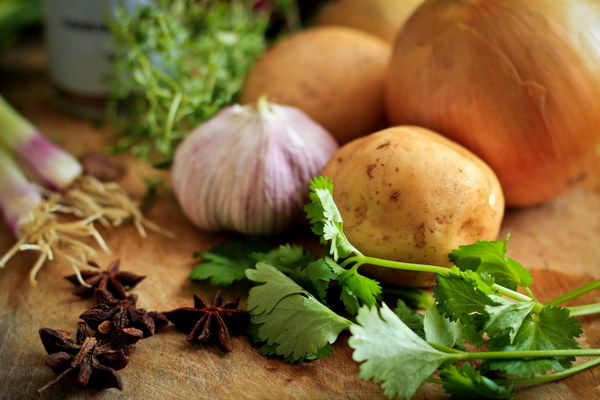The Taoist Approach to Healthy Eating Nourishing the Body and Soul
In the pursuit of longevity and wellness, Taoists have developed a unique and holistic approach to eating that aims to harmonize the body, mind, and spirit. This ancient philosophy teaches that the way we eat can greatly influence our health and well-being. Here, we delve into the Taoist principles of eating, offering insights into how to nourish the body and soul through mindful and balanced meals.
1. Embrace the Five Elements
Taoism is deeply rooted in the concept of the Five Elements: wood, fire, earth, metal, and water. These elements represent the fundamental forces that govern the universe and our bodies. To maintain a balanced diet, Taoists suggest incorporating foods that correspond to each element, ensuring that the body remains in harmony.
- Wood: Leafy greens, sprouts, and other vegetables promote growth and renewal. These foods are ideal for the liver, which is associated with wood in Taoism.
- Fire: Spicy and hot foods, such as chili peppers, ginger, and garlic, stimulate the body and help to generate energy. These foods are linked to the heart and small intestine.
- Earth: Root vegetables, grains, and nuts provide grounding and stability. They are associated with the spleen and stomach, which are responsible for digestion.
- Metal: Fruits, nuts, and seeds are cooling and soothing, and are believed to help with the lungs and large intestine.
- Water: Seafood, algae, and dairy products are nourishing and moistening, and are associated with the kidneys and bladder.
2. Seasonal Eating
Taoists believe that eating in harmony with the seasons is essential for maintaining health. Each season corresponds to a specific element and organ, and consuming foods that align with these energies can support overall well-being.
- Spring: Focus on wood elements like leafy greens and sprouts to invigorate the liver and promote detoxification.
- Summer: Incorporate fire elements, such as spicy and hot foods, to support the heart and small intestine and help regulate body temperature.
- Autumn: Emphasize earth elements like root vegetables and grains to strengthen the spleen and stomach and provide grounding.
- Winter: Consume water elements, such as seafood and dairy, to nourish the kidneys and bladder and protect against the cold.
3. Mindful Eating
Taoism emphasizes the importance of mindfulness during meals. This means eating slowly, savoring each bite, and being fully present. By focusing on the taste, texture, and aroma of food, we can enhance our digestion and absorption of nutrients. Here are some tips for practicing mindful eating:

- Sit down to eat: Avoid eating on the go or while multitasking, as this can lead to poor digestion.
- Chew thoroughly: Chewing food for longer periods of time helps to break down nutrients and improve absorption.
- Eat in a calm environment: Create a peaceful atmosphere that encourages relaxation and focus.
- Express gratitude: Take a moment to appreciate the food and those who prepared it before beginning your meal.
4. Moderation and Balance
Taoists advocate for a balanced diet that includes a variety of foods, ensuring that the body receives all the necessary nutrients. This means avoiding excessive intake of any particular food group and instead focusing on a diverse array of fruits, vegetables, grains, proteins, and fats.
- Protein: Include a variety of protein sources, such as lean meats, fish, eggs, legumes, and nuts, to support muscle growth and repair.
- Fats: Consume healthy fats from sources like avocados, nuts, seeds, and olive oil, which are essential for hormonal balance and nutrient absorption.
- Carbohydrates: Choose complex carbohydrates like whole grains, legumes, and sweet potatoes, which provide sustained energy and fiber.
By embracing the Taoist principles of eating, we can cultivate a healthier, more balanced lifestyle that promotes longevity and well-being. By focusing on the elements, seasons, mindfulness, and balance, we can nourish our body and soul, and experience the profound benefits of this ancient wisdom.









